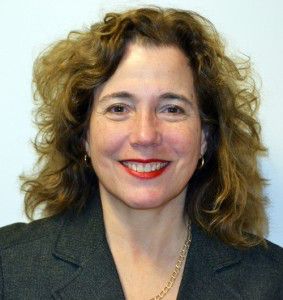
“I would not be where I am today was it not for Karen Jacobs,” said Nancy MacRae, a friend who nominated Sargent College of Health and Rehabilitation Sciences professor Karen Jacobs for the Eleanor Clarke Slagle award, the highest academic award in occupational therapy.
“I am just one of the countless students who have been inspired to become advocates, leaders, researchers and productive members of the occupational therapy profession,” MacRae said.
After receiving the award in April 2011, Jacobs said she is set to publish a lecture of her choice in the November/December 2011 issue of the American Journal of Occupational Therapy. Jacobs said that her paper, “Promoting Occupational Therapy: Words, Images and Actions,” is in its final stages and will focus on the history of promoting occupational therapy.
Winning the award is a goal Jacobs set for herself as a SAR graduate student in 1979, she said. The award honors members of the American Occupational Therapy Association who “creatively contributed to the development of the body of knowledge of the profession through research, education and clinical practice,” according to her award letter.
Jacob said that some of her professors and colleagues told her that her goals were outrageous. In spite of two unsuccessful nominations, Jacobs said she continued to challenge herself by keeping her “stretch goals” in mind.
SAR senior Jenna Tamburello said that she isn’t surprised that Jacobs’ persistence paid off.
“That’s one of the things that reflects in her career, that she puts 150 percent into everything she does,” Tamburello said.
During her classes, Jacobs said that she stops at each half-hour and jumps up with her students for a stretching break, an activity she advocated for in her CD-ROM program “Stretch Break for Kids,” which is designed to prevent repetitive strain injuries. As of September 2011, the computer program has been translated into Spanish, Icelandic and Portuguese.
“It’s interactive. She wants us to learn through the activities we’re doing and not just sit in class and hear the lecture,” Tamburello said.
Jacobs also serves as the editor of WORK: A Journal of Prevention, Assessment and Rehabilitation. Founded by Jacobs in 1990, WORK is seen as a vehicle for highlighting the “scholarship and practice of previously under-represented aspects of occupational therapy,” according to MacRae’s nomination letter.
MacRae met Jacobs 30 years ago, when they served as presidents of their respective state occupational therapy associations, she said in an email. With help from Jacobs, she was able to write chapters in her friends’ books, co-write chapters and co-edit a text for students of occupational therapy.
“She has thus been an inspiration and a model for me, as well as an enduring friend,” MacRae said.
“I think you can definitely see why BU has the number one [occupational therapy] program – because our faculty is so strong,” Tamburello said. “She just represents that to the fullest because everything she does is so thought out and not just her spitting back material to us.”
“I see rotary and occupational therapy being on the same vision and mission for helping people stay healthy, helping people around the world,” Jacobs said.
Jacobs said that she owes her accomplishments, namely the award, to her colleagues, her family and her friends.
“This is an award that takes a village,” she said. “I’m receiving this award because of a lot of people who have helped me achieve where I am in my career.”
This is an account occasionally used by the Daily Free Press editors to post archived posts from previous iterations of the site or otherwise for special circumstance publications. See authorship info on the byline at the top of the page.












